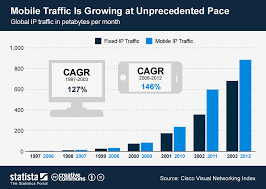2. Create High-Quality, Long-Form Content
When it comes to SEO in 2025, creating high-quality, long-form content is one of the most effective ways to increase website traffic. Content that is both comprehensive and valuable to readers tends to perform better in search engine results. Long-form content (typically 1,500+ words) allows you to dive deeper into topics, which increases the likelihood of attracting organic traffic. Let’s explore why long-form content matters and how to create it.
Why Long-Form Content Works
Search engines like Google favor content that thoroughly answers a user’s query. Long-form content allows you to target multiple related keywords within a single piece of content, making it more likely to rank for a range of terms. Additionally, these longer articles give search engines more data to analyze, improving your chances of ranking higher.
The benefits of long-form content include:
- Higher rankings: Long-form content often ranks higher because it offers more value and is more likely to satisfy search intent.
- Better user engagement: Longer posts tend to keep readers on your site for longer, reducing bounce rates and increasing dwell time—both positive ranking factors.
- Increased shareability: Comprehensive, valuable content is more likely to be shared on social media or linked to by other websites, which can drive additional traffic and backlinks.

How to Create High-Quality Long-Form Content
Creating long-form content doesn’t just mean writing long blog posts. It’s about delivering high value to your readers while keeping them engaged. Here’s how to do it:
- Choose Relevant, In-Demand Topics
Start by selecting topics that resonate with your audience’s needs and interests. Use keyword research tools like Google Keyword Planner or Ahrefs to identify high-volume, relevant keywords. Aim to create content that not only targets specific keywords but also answers common questions in your niche. - Break Down Complex Topics
Long-form content works best when it provides in-depth information. Instead of just scratching the surface, break complex topics into detailed sections. This approach not only helps your readers but also improves your chances of ranking for a variety of related long-tail keywords. - Focus on Quality Over Quantity
While long-form content typically requires more words, don’t just write for the sake of length. Ensure that every word adds value. Aim for clarity, readability, and substance. Focus on answering your audience’s questions in a clear and engaging way. - Use Engaging Visuals
Break up your text with relevant images, infographics, videos, or charts. Visual elements make your content more engaging and can help explain complex concepts more clearly. Plus, images and videos can boost SEO if optimized correctly with alt text. - Optimize for SEO
Don’t forget to optimize your long-form content for SEO. This means using the target keyword in the title, headers, and body of the text. Include related LSI (Latent Semantic Indexing) keywords throughout the post. This allows search engines to better understand the context and relevance of your content. - Structure Your Content for Easy Reading
The readability of your long-form content is key to maintaining engagement. Use clear, concise headings (H1, H2, H3) to organize the content. Bullet points and numbered lists can make it easier for readers to skim and find the information they need quickly. - Link to Relevant Internal and External Content
Internal linking helps users discover more of your content and allows search engines to crawl your website more effectively. External links to authoritative sources not only enhance the value of your content but also build trust with your audience and search engines.

How Long-Form Content Drives Traffic
When you consistently publish valuable, long-form content, you’re more likely to rank for multiple keywords, which leads to increased organic traffic. By targeting a range of search intents (informational, transactional, navigational), you can attract a wider audience.
Here’s how long-form content helps with traffic growth:
- Increased Keyword Reach: Longer posts allow you to target a broader set of keywords, including primary keywords, LSI keywords, and related terms.
- Enhanced Shareability: Detailed, informative content is more likely to be shared on social media or referenced by other websites, increasing its exposure and driving traffic.
- Higher Click-Through Rates: Well-crafted, in-depth content is more likely to appear in featured snippets and rich snippets, leading to higher click-through rates (CTR) in search results.
- Builds Authority: As you publish more long-form content, you position yourself as an authority in your niche. This helps build trust with both users and search engines.

Examples of Successful Long-Form Content
- Case Studies: Provide in-depth analysis of a project, campaign, or study in your industry. Case studies offer both detailed information and real-world examples that your audience will find valuable.
- How-To Guides: Step-by-step tutorials or guides are great for ranking in search engines, especially for users who are looking for specific solutions to their problems.
- Ultimate Resource Lists: Create comprehensive lists of tools, resources, or tips on a particular subject. These posts tend to be highly valuable and link-worthy.
Conclusion
Creating high-quality, long-form content is one of the best ways to increase website traffic and boost your SEO efforts in 2025. By providing valuable, well-researched, and engaging content, you’ll not only improve your rankings but also enhance the user experience on your site. Remember, SEO is about creating value, and long-form content is one of the most powerful ways to deliver that value to your audience.
Related Tags:
- Long-Form Content SEO
- Content Marketing Strategies
- Increase Website Traffic
- SEO Content Optimization
- Blogging for SEO
- Keyword Research Tips
- SEO Content Writing
- Content Strategy for SEO
- Long-Form Blog Posts
- Search Engine Optimization













